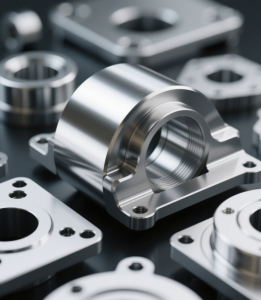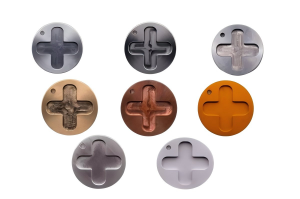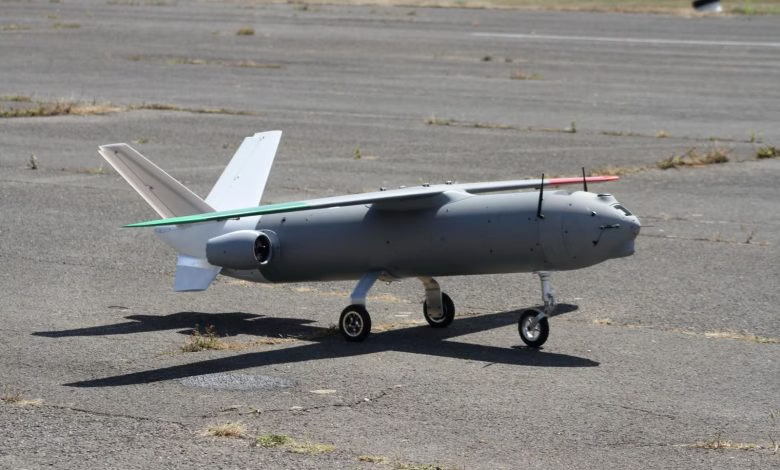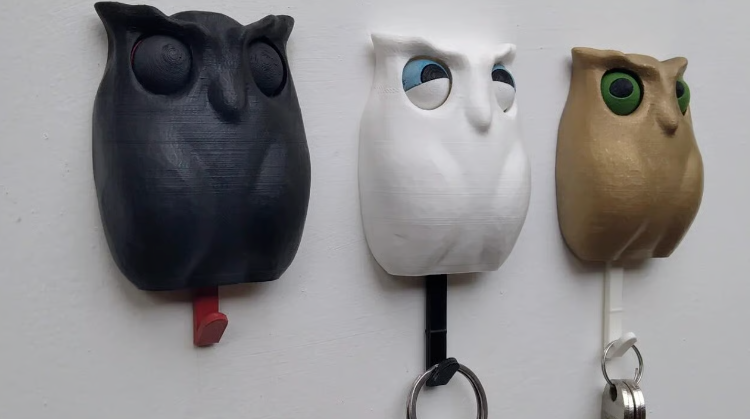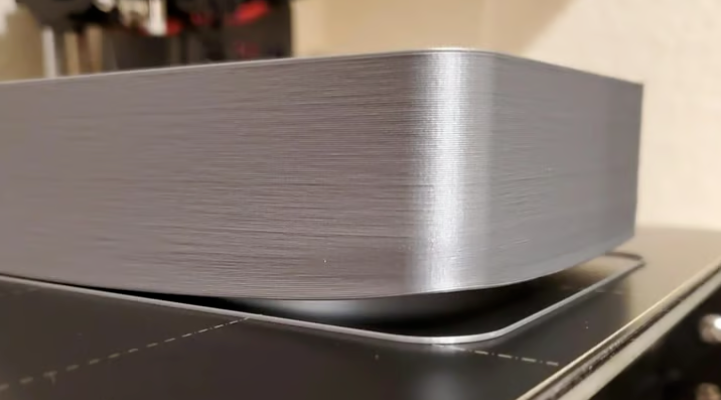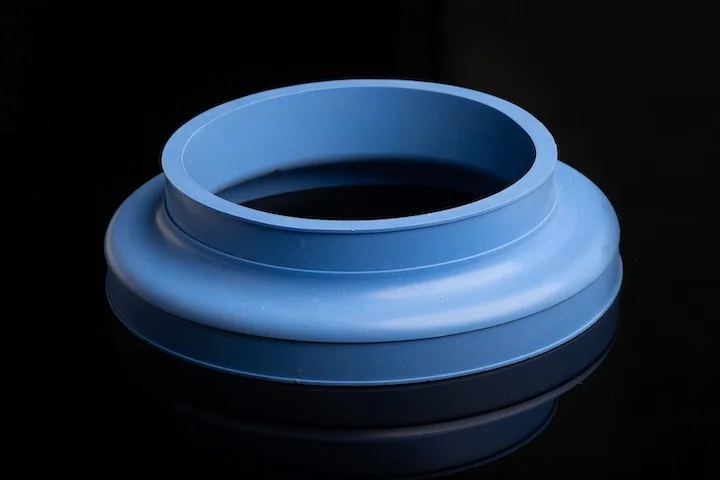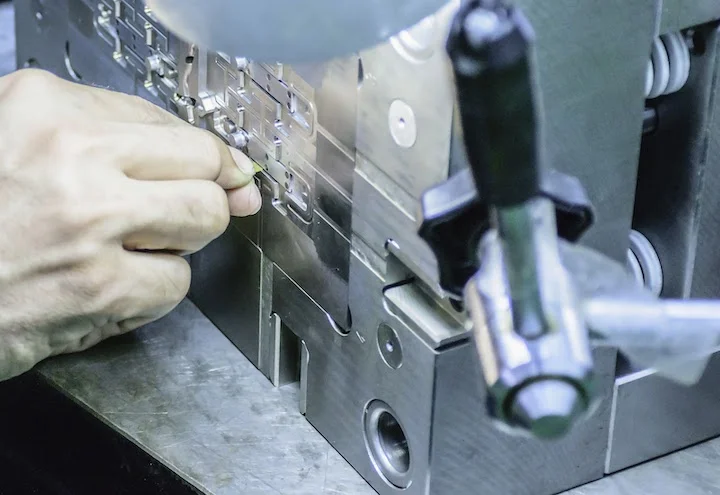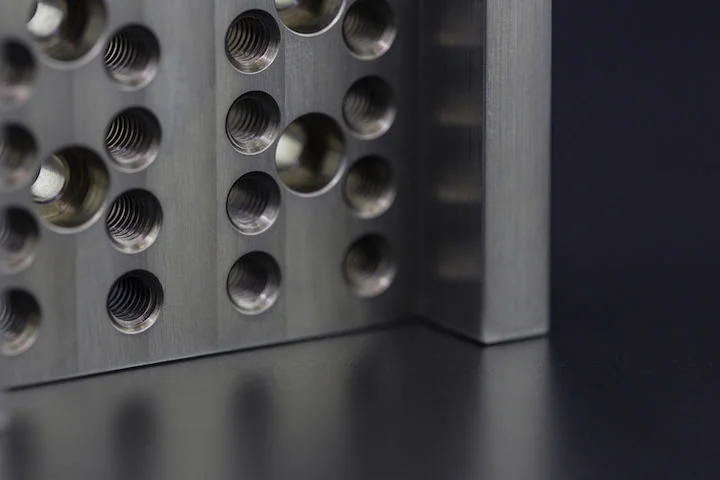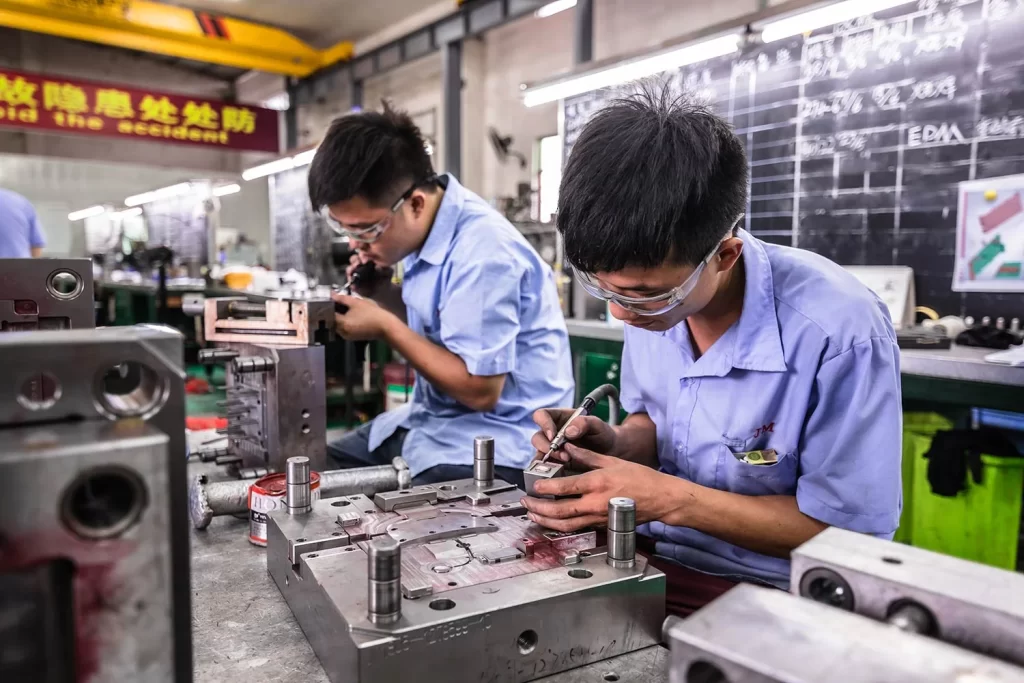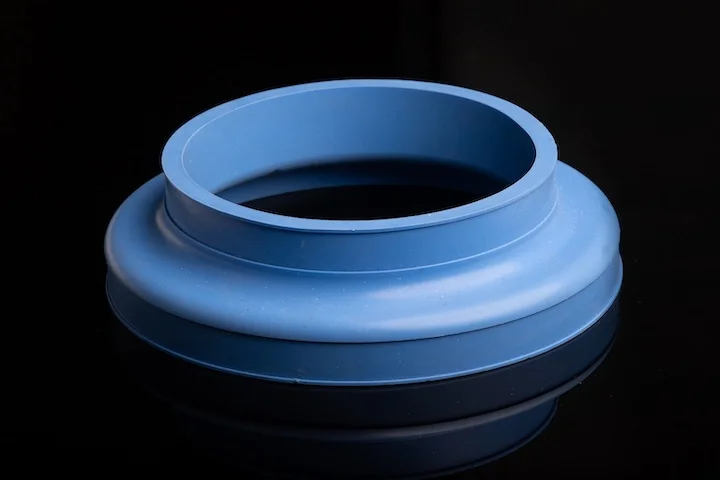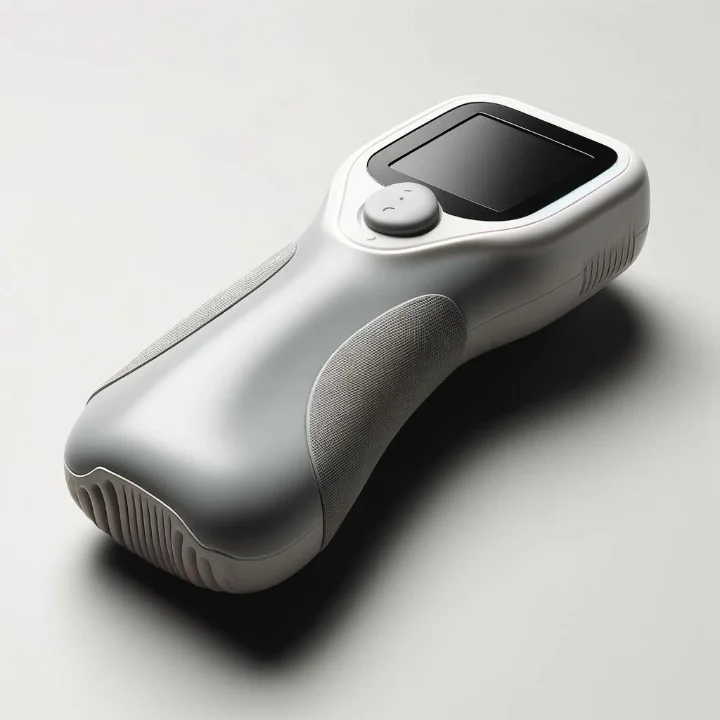Stepper motors are high-torque motors commonly used in 3D printers to control moving parts. The working principle of a stepper motor involves a magnetically sensitive shaft that moves when electromagnetic coils around it are energized. When only one coil is fully powered, this is known as a full step.
However, the shaft can also move via micro-stepping, achieved by powering two electromagnetic coils at different levels. Micro-stepping enables more precise motion, with its own set of advantages and disadvantages. There are different levels of micro-stepping, depending on the fraction of a full step the motor moves (e.g., 1/32, 1/64).
Stepper motor drivers are components on a 3D printer’s motherboard responsible for controlling the power to the electromagnetic coils on the stepper motor, making the motor shaft rotate a specific distance. The driver and its micro-stepping performance significantly impact the noise generated by the printer.
If you use a stepper motor that only uses full steps to achieve half-steps, the electromagnetic coils will continuously gain and lose power, causing the shaft to oscillate between the two coils, approximating the midpoint. This oscillation creates significant vibration and loud noise. The better the micro-stepping capability of the stepper motor driver, the less vibration it produces, and the quieter the printer becomes.
1. TMC2130
The TMC2130 driver, the successor to the TMC2100, is most commonly found under the hood of Prusa Research printers and Prusa clones. While most drivers are used for various motion control purposes, Trinamic Motion Control specifically designed the TMC2130 for 3D printers.
This driver is on the pricier side of stepper motor drivers, but what it lacks in affordability, it makes up for in quality. The TMC2130 driver keeps your 3D printer super quiet; manufacturers note that only the fan noise is audible.
The TMC2130 model driver supports 1/256 micro-stepping and can operate in StealthChop or SpreadCycle mode. It also incorporates various TMC technologies, including StallGuard2, CoolStep, short protection, and ChopSync. These features enhance the machine’s printing quality by improving driver performance, making it more reliable and intelligent—for example, by measuring stepper motor load.
We recommend the TMC2130 over the TMC2100 because the TMC2130 supports CoolStep and StealthChop, both of which are useful. The price difference between the two is also quite low.
In short, the TMC2130 is an excellent choice for building a new 3D printer, as it was designed with 3D printing in mind. We suggest purchasing the SPI-configured TMC2130 module, as the standalone mode does not allow the use of StealthChop or CoolStep.
- Developer: Trinamic Motion Control
- Micro-step Level: 1/256
- Drive Modes: StealthChop, SpreadCycle, with other features like ChopSync, StallGuard2, microplayer, and CoolStep
- Price: ~ $10
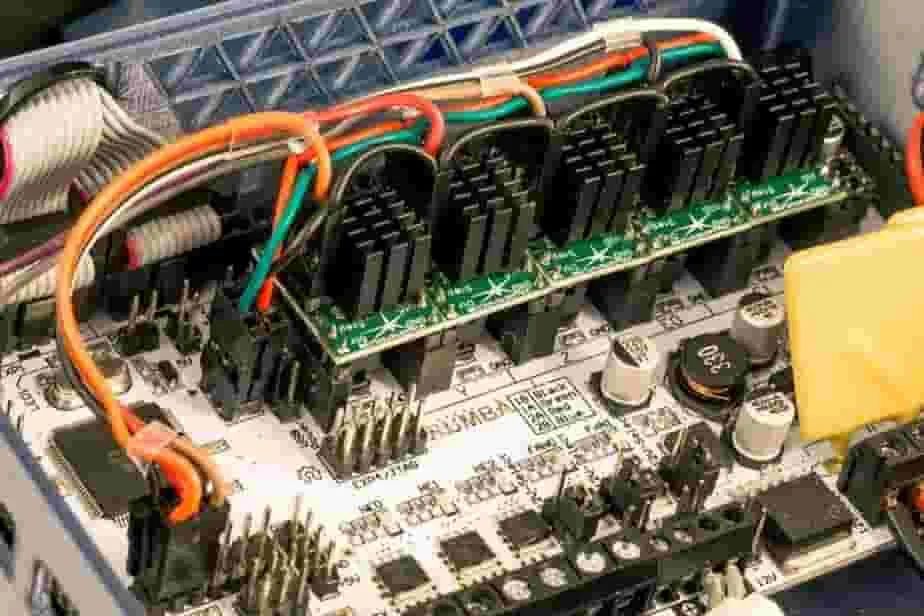
2. TMC2209
The TMC2209 driver is an improved version of Trinamic Motion Control’s TMC2208 driver, featuring several new functions not present in its predecessor. We once recommended TMC2208s, but they lacked sensorless homing and compatibility with Marlin’s linear advance feature. The TMC2209 supports both.
It also supports StallGuard4, which enhances the driver’s StealthChop2 capability and enables CoolStep support. This allows the driver to operate at lower power than TMC2208s. The TMC2209 also supports a higher maximum current range from 1.5A to 2.0A.
If you’re debating between the TMC2208 and TMC2209, the support for linear advance alone justifies the slight price difference. Just ensure the TMC2209 is properly cooled; Michael Raus of TeachingTech notes on YouTube that they can get quite hot.
Like most modern stepper motor drivers, the TMC2209 is known for making 3D printers very quiet, and you can find them on some motherboards, such as the BigTreeTech SKR E3 V1.1. They also work in UART communication mode.
We strongly recommend the TMC2209 as the top choice when upgrading a 3D printer’s driver or even when custom-building your own printer. The advanced features will undoubtedly enhance your printing experience, offering excellent value for money.
- Developer: Trinamic Motion Control
- Micro-step Level: 1/256
- Drive Modes: StealthChop2, SpreadCycle, CoolStep, StallGuard4, and microplayer
- Price: ~ $5
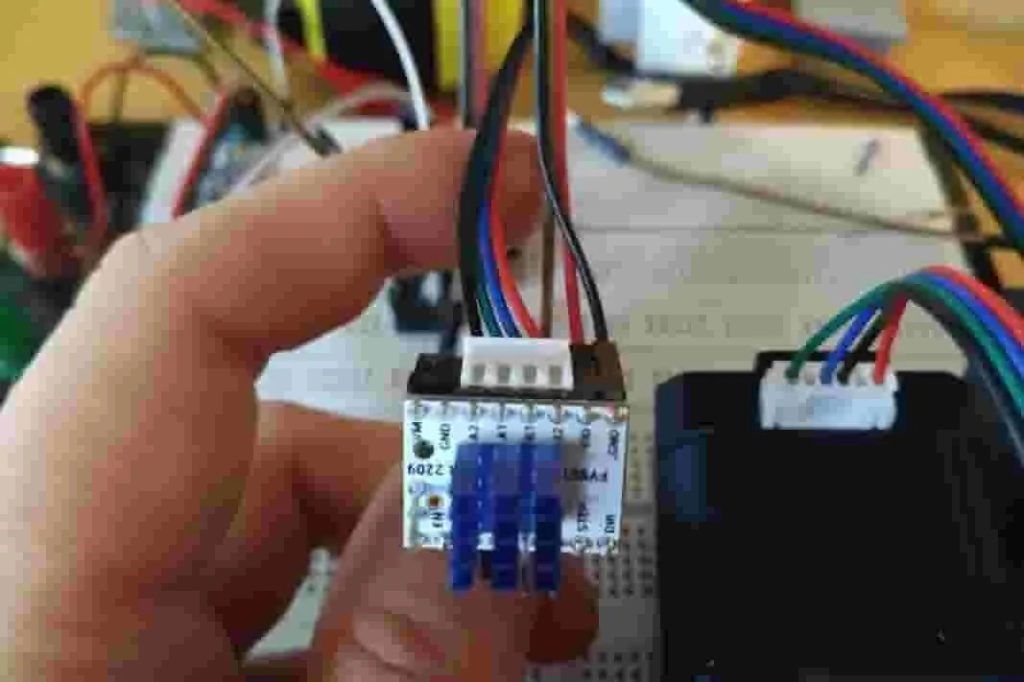
3. TMC2225
The TMC2225 is a stripped-down version of the TMC2209, designed to reduce costs. These affordable drivers can be found on Creality’s V4.2.7 silent board.
Despite their budget-friendly price, the TMC2225 offers features that punch above their weight. With 1/256 micro-stepping and StealthChop2, they enable very quiet and precise printing. They also support UART.
Ensure this driver is effectively cooled; otherwise, it may miss steps, especially at high micro-stepping levels. Also, note that this driver operates in standalone mode, meaning using linear advance with Marlin firmware is impossible.
If reducing noise and improving precision is your goal, give the TMC2225 a try.
- Developer: Trinamic Motion Control
- Micro-step Level: 1/256
- Drive Modes: StealthChop2, SpreadCycle, microplayer
- Price: ~ $4
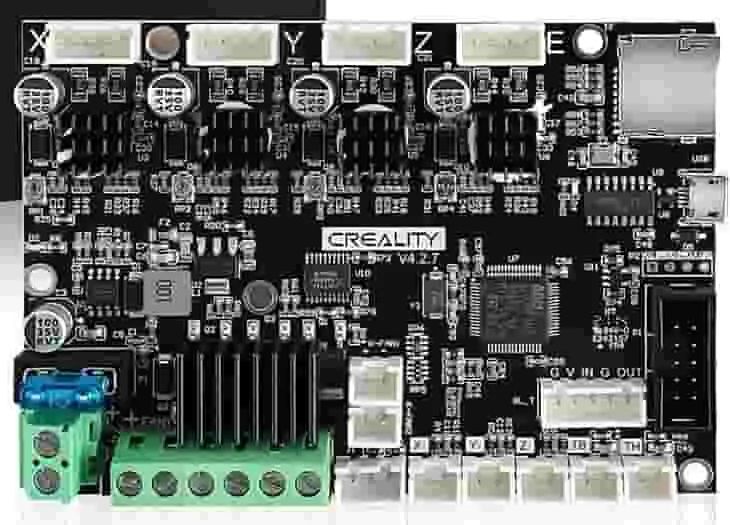
4. TMC5160
The TMC5160 is a more powerful and feature-rich version of the TMC2209. While most stepper drivers range from 0-2A, the TMC5160 spans 0-10A! It can also operate at voltages up to 60V.
This significant increase in amperage and voltage means you can drive larger motors, such as the NEMA23 motors commonly found in CNC machines. Additionally, high-speed printers like Voron and its derivatives utilize larger motors because they can handle the required forces to move axes quickly better than NEMA17 motors.
TMC5160 drivers run cooler than TMC2209s, extending the driver’s lifespan and reducing the risk of thermal cycle damage over time. They also feature six-point improved acceleration control. Finally, the drivers work in both SPI and UART modes, making configuration a breeze.
If you’re looking to build a high-speed 3D printer or run a large machine, the TMC5160 is your best bet. They are expensive, but overall, they are the optimal choice for these workloads.
- Developer: Trinamic Motion Control
- Micro-step Level: 1/256
- Drive Modes: StealthChop2, SpreadCycle, StallGuard2, CoolStep, DcStep, SixPoint motion, microplayer
- Price: ~ $15
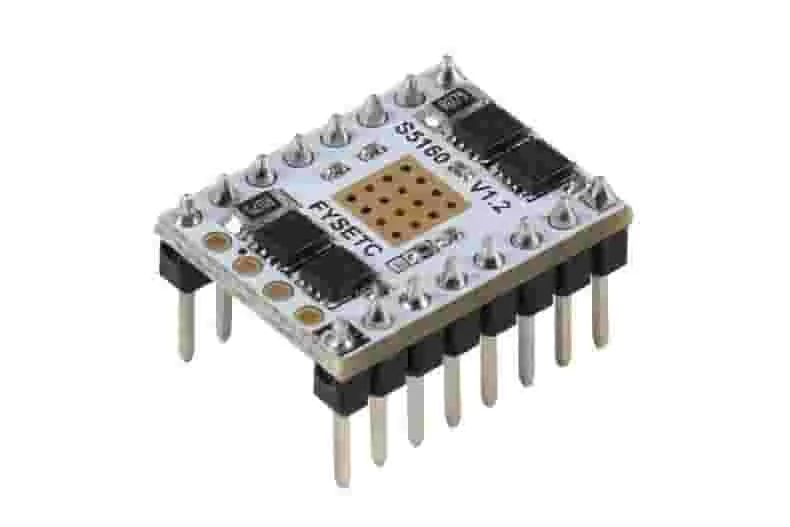
5. A4988
Designed by Allegro MicroSystems, the A4988 driver is relatively old compared to others on this list. While the A4988 isn’t the latest or best driver model, it’s a reliable choice for 3D printers. They can be integrated into low-end motherboards, such as Creality’s earliest Ender 3 motherboards, versions V1.1.2 and V1.1.3.
Depending on the manufacturer, these drivers are typically rated for 1/16 micro-stepping, which certainly doesn’t stand out, but may meet your minimum requirements. Additionally, they won’t make your motor as quiet as newer drivers like the TMC2209.
Unlike most modern drivers, A4988 drivers lack many compatible modes, meaning they can’t execute some 3D printing functions. Furthermore, in some reviews, users note that adjusting the driver’s potentiometer (voltage divider tool) can be difficult. Nevertheless, they are a tried-and-true option that won’t break the bank!
- Developer: Allegro MicroSystems
- Micro-step Level: 1/16
- Drive Mode: Mixed current decay, slow current decay, with automatic selection
- Price: ~ $2
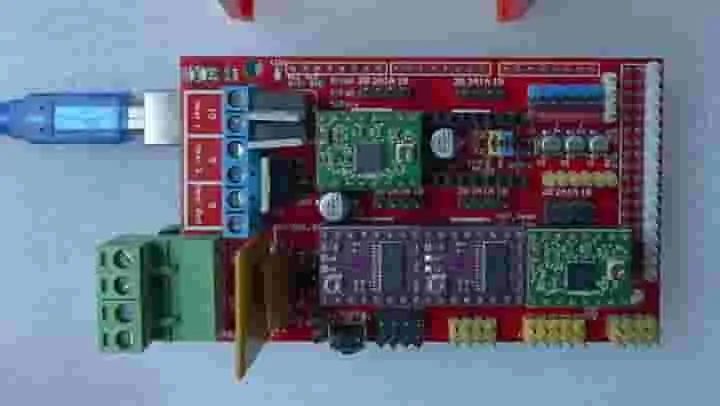
6. LV8729
The LV8729 driver is a less popular option but still a good choice due to its low cost. This driver isn’t integrated into any popular motherboards, but it can be purchased as an accessory for open-source RAMPS boards (a popular model of 3D printer motherboards).
Compared to the A4988 driver, this model has some improved features but still lags behind the performance (and price) of some other models on our list. According to audio tests by TeachingTech, this driver is louder than most modern drivers but slightly quieter than the A4988 driver. Nevertheless, some users claim the driver handles high speeds well (e.g., 170 mm/s).
The LV8729 driver enables 1/128 micro-stepping, allowing higher dimensional precision at a low cost. The LV8729 driver model also requires minimal wiring to achieve this micro-stepping value, but it lacks many other features or optional modes.
- Developer: OnSemi
- Micro-step Level: 1/128
- Drive Mode: StealthChop
- Price: ~ $4
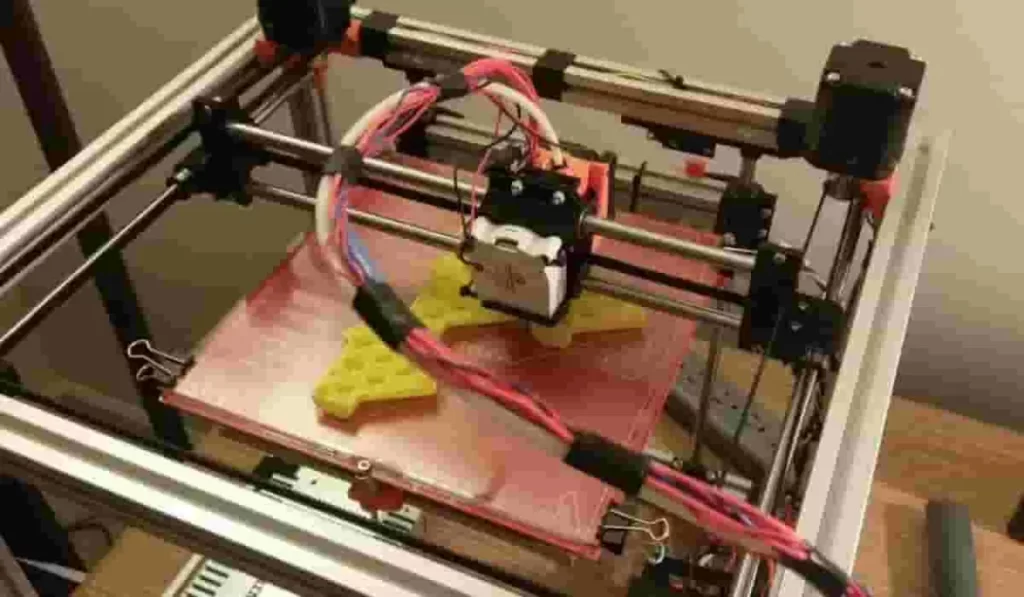
For more information, please contact Debaolong Seiko. You are also welcome to upload your designs to Debaolong Seiko for a quotation.

